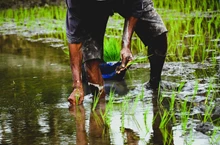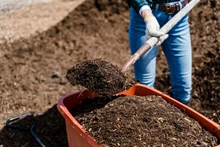
Savitribai Phule Pune University (SPPU) has introduced a course on organic farming under the earn-and-learn scheme, with an increased remuneration of Rs 55000 to 5 Lakh.
Earn and Learn Scheme
India's population is predominantly rural, and there's a noticeable divide between rural and urban regions. This initiative aims to specifically benefit economically disadvantaged, bright, and accomplished students from rural areas who otherwise couldn't afford higher education due to financial constraints. It emphasizes the notion that no job is too small or insignificant and aims to instill a strong work ethic in students.
The program represents a significant shift in how we perceive higher education, focusing on making it accessible to economically underprivileged and marginalized students. The recent announcement by our Vice Chancellor, Dr Narendra Jadhav, emphasizes the need for flexibility to accommodate students' work preferences. This approach not only ensures that young people can gain meaningful employment but also encourages them to contribute to civil society.
Currently, the program operates at both post-graduate levels on the university campus and at the graduate level in affiliated colleges and recognized institutions under the University of Pune's jurisdiction. The affiliated colleges and institutions are eligible for financial assistance covering half of the expenses incurred in running the program. To avail this support, they must provide the necessary documentation to the Director of the Board of Students' Welfare.
Students who wish to participate in the program need to complete an application form, which is then reviewed by an appropriate committee. The finalized list of enrolled students should be submitted to the Director of the Board of Students' Welfare by September 15th each year, provided that the college or institution has obtained permission to participate in the scheme.
Once enrolled in the program, students are assigned various types of work to broaden their skills. These tasks include activities related to their field of study, office work, technical tasks, and fieldwork. To ensure fairness, students are given equal opportunities to engage in different types of work, with a distribution of 80% technical work and 20% fieldwork. Office work may involve tasks such as working in the library or at any institute office.
Technical work encompasses activities like using computers, operating office machines (e.g., photocopying), or working at a telephone booth. Fieldwork may include responsibilities like tending to the garden, taking care of newly planted trees, maintaining playgrounds, and ensuring the cleanliness of the campus. Each student is expected to dedicate three hours daily to these activities.
As a form of compensation, students participating in the program receive an honorarium of Rs. 45 per hour, as per the revised rates effective from February 1, 2017.
Payments are made based on attendance records, which must be maintained by the respective institute, college, or university. To facilitate this process, students are encouraged to open bank accounts in their local areas to receive payments via checks. At the end of each year, the institute or college must submit annual accounts for the program as part of the central audit.
The financial support for colleges and institutions participating in the scheme is determined based on specific ratios. Depending on the number of enrolled students, they receive financial assistance as follows:
- 1 to 500 students - Rs. 75,000
- 501 to 1000 students - Rs. 1,50,000
- 1001 to 1500 students - Rs. 2,25,000
- 1501 to 2000 students - Rs. 3,00,000
- 2001 to 2500 students - Rs. 3,75,000
- And so on, with an increment for every additional 500 students, reaching Rs. 15,00,000 for 9501 to 10000 students.
In the current budget, an allocation of Rs. 6 Crores has been made to ensure that every eligible student receives an opportunity to work and participate in this valuable program.











